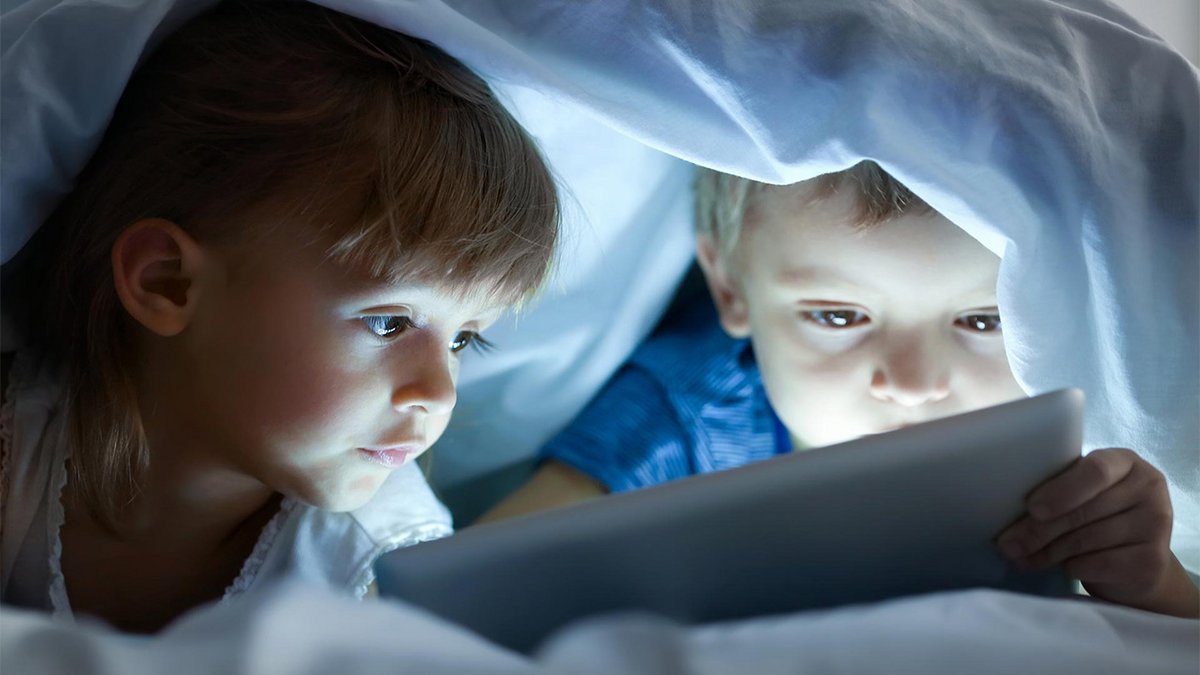Smartphones, tablets, TV, PC… It’s difficult to escape screens today. According to INSEE, more than a third of French people suffer the harmful effects: sleep disorders, conflicts, obsessive desires. Young people are the first to be affected by this evil of the digital century.
At a time when our smartphones have become real products to click on, their usage time has exploded in recent years. On average, a French person now spends 3.5 hours a day with their eyes glued to their various screens. Worrying when we know the numerous impacts that this prolonged exposure can have on our physical and mental health.
The figures from the latest INSEE study speak for themselves: one in three French people report at least one negative effect linked to their consumption of screens, whether on their sleep, their practice of other leisure activities or their morale. Worse, this proportion rises to 57% among those under 20!
It is indeed the youngest who pay the heaviest price for this addiction of the 21st century.e century: disrupted sleep cycles, neglected hobbies, obsessive feelings or recurring depression… This phenomenon does not spare parents either, who are faced with regular conflicts with their children around the issue of screens. With the few efforts made by the tech giants who are starting to react, Clubic gives you some wise advice to find a more measured use of screens.
Disturbed sleep, family conflicts, young people most affected by the harmful effects of screens
An INSEE study, published on June 13, 2024, shows that nearly a third of Internet users say they use screens excessively due to their daily use. Although screens facilitate communication with loved ones, too frequent use can cause conflicts with those around you due to the dependence they can create.
INSEE figures
34% of French Internet users aged 15 to 74 say they feel at least one negative effect linked to excessive screen use. And young people are particularly affected: 57% of those under 20 and 49% of 20-34 year olds. This is perhaps the reason why Emmanuel Macron wishes “ keep young people away from screens “.
And for the youngest, the data is cause for concern. In 2023, the Elfe study, carried out jointly by INED and INSERM, revealed that the average daily screen time of a 2-year-old French child was 56 minutes, then 1 hour 20 minutes at 3 years old. and a half, and finally from 1:34 to 5 and a half years.
The most cited effect is reduced sleep time (25%), followed by neglect of other hobbies (10%) and feelings of obsessive urge to use screens (9%). Moreover, Instagram has set up a little reminder for its young users who tend to prefer scrolling rather than going to bed.
Impacts on sleep, leisure and morale
Young people pay a heavy price. Depression, addiction, isolation… 37% of 15-19 year olds and 43% of 20-29 year olds limit their sleep to stay on their screens. 15% of 15-19 year olds and 18% of 20-24 year olds abandon their other activities. The feeling of depression affects 11% of 15-19 year olds after use. And nearly one in five young people feel an obsessive urge to use their screens.
However, although an INSERM study has nuanced the risks linked to exposure to screens on our cherubs, the WHO persists and signs: we must avoid contact with screens before 2 years of age and reduce it to 1 hour per day between 2 and 5 years.

Tools and best practices for controlling your screen time
Faced with this phenomenon, digital giants are mobilizing by offering features to control screen time.
Apps, widgets and parental controls
Among all the tools offered by sites, browsers or applications such as ManicTime or Time Boss Pro, there is one that reminds us to look in front of us when we walk. This means that we tend to be absorbed by what we scroll through on our mobile screens, even when we leave the house, thanks to the “Heads up” function of Google’s Digital Well-being application .
And to put us against the wall, because we don’t necessarily notice the time that passes when we are absorbed by our screens, the OnePlus wallpaper gets straight to the point and crudely displays the time spent by category. apps.
The GAFAM giants are trying to play the role of arsonist firefighters by offering their own parental control tools and alerts to better regulate use by young people. Instagram thus gives more control to parents to protect their children from sensitive content published on the social network. For its part, TikTok has decided to curb its users’ screen addiction, and by extension its application, by implementing a time limit of 60 minutes of use for subscribers under 18 years old.
Workaround solutions, but all in all which have the merit of existing and, who knows, perhaps of deterring young addicts from using their screens for a while.
Good habits to adopt to take a step back from our screens
Beyond the tools, a few wise actions can help you reduce dependence on networks and screens in general.
Getting away from screens is easy to say, but when we can’t avoid them, for example in a professional setting, we might as well make sure that they don’t harm our health. So, Studio Clubic has drawn up a list of tips for spending time in front of our screens without harming our bodies. Disabling notifications on your smartphone is also a good way to leave it on standby and at a distance, as is switching the display to black and white, which is less attractive. And because sometimes you have to do something violent, distancing yourself from screens can be done without outside help with simple practices to put in place.
For example, avoiding television, smartphones or tablets at least two hours before bedtime, regardless of our age. How to do ? If the weather and the season permit, a little walk at the end of the day, that book gathering dust on the bedside table or a family board game are all ways to forget your smartphone or your Netflix series.
Some go so far as to treat themselves to regular “disconnects” by leaving their smartphone at home. A real challenge for 35% of Internet users, who say they have already tried, without success for 7% of them, to reduce their screen consumption.
Even if screens make our daily lives easier, staying in control of our uses sometimes requires radical measures. And if the right to disconnect exists, then why not take advantage of it to disconnect and take a deep breath?
Download
Time Boss Pro
Download
Download
Download
ManicTime
Download
Download
Source : INSEE





0